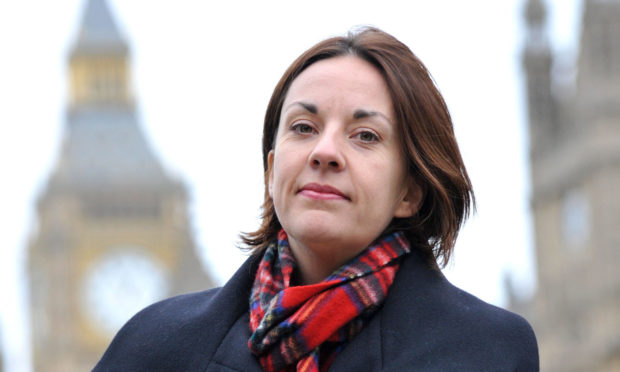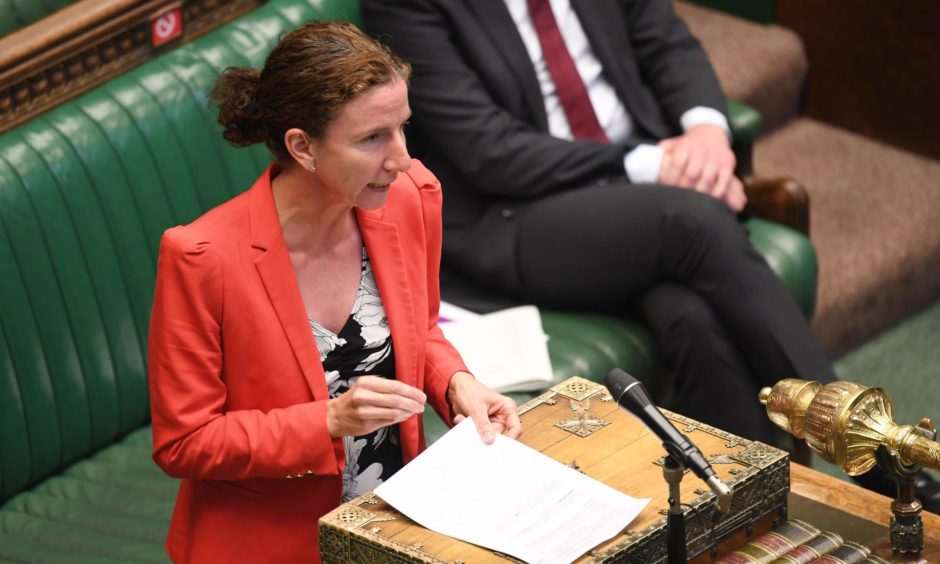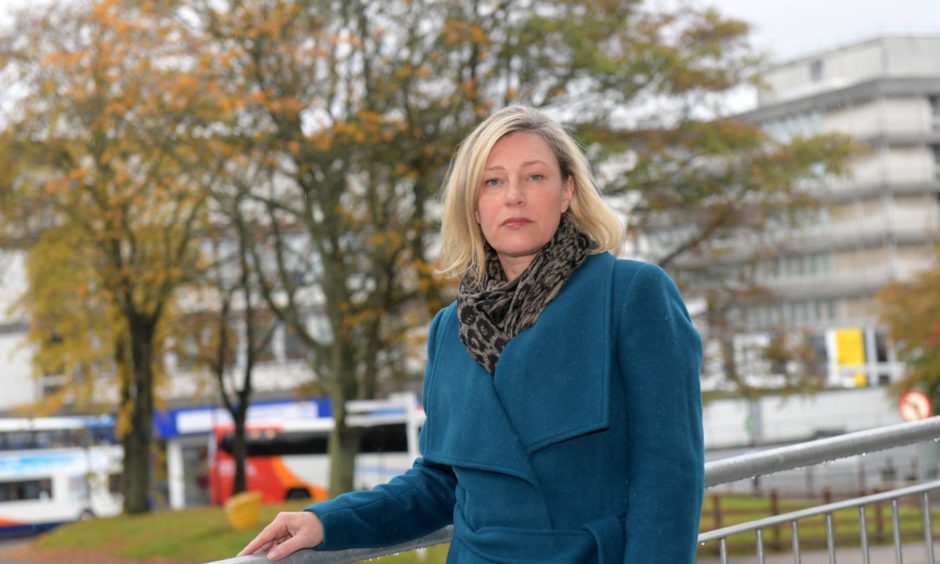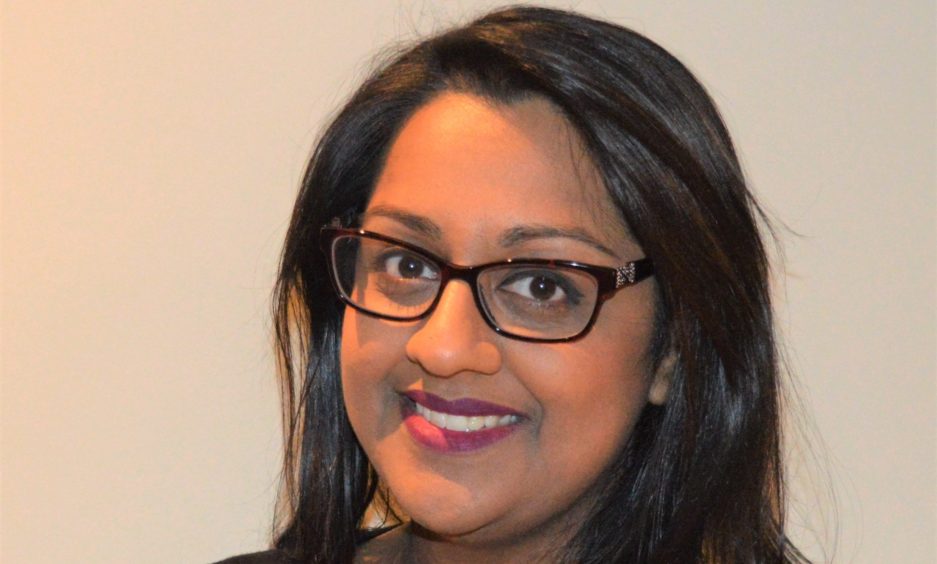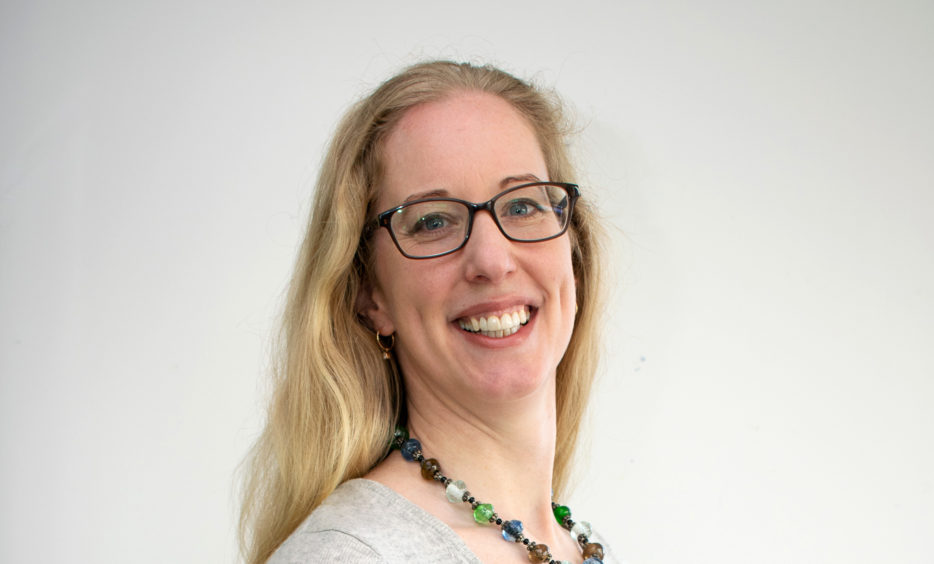Former Scottish Labour leader Kezia Dugdale believes women with all the skills for elected office are put off standing to avoid the “toxic online culture” that exists.
The former leader of the Scottish Labour Party, who now heads up the John Smith Centre in Glasgow, which carries out research into politics and public life, says online abuse is the “single biggest factor” that turns women off running for elected office.
Ms Dugdale joins a growing chorus of voices, including politicians and campaigners for female representation in politics, calling for concrete action to be taken in a bid to prevent women turning away from a life in politics.
The issue has fallen sharply under the spotlight in recent days after the Daily Record revealed Health Secretary Jeane Freeman has received personal attacks based on her age and appearance.
Ms Freeman told the newspaper that what happens on social media is “particularly toxic”, adding that it concerns her that young women may be put off a career in politics because of the sexist attacks directed at female politicians.
Our own interview with UK Shadow Chancellor Anneliese Dodds, during her visit to Scotland this week, revealed she has also been on the receiving end of “sexist comments”. While she admits she is “relatively used to it”, Ms Dodds fears the impact this might have on those who might be considering getting involved in political life.
She said: “There’s a lot of support among women in those circumstances but we shouldn’t feel that we just have to put up with it. It shouldn’t be there in the first place.
“I suppose I’m relatively used to it. I now kind of realise that if, for example, I receive very sexist comments, that it’s not about me as an individual, it’s more, really, about the person that has posted that strange material.
“That is something I have learnt over a number of years and the concern is for those who haven’t been involved before that it could come as quite a shock if they’re not prepared for it.
“More needs to be done to make sure that particularly social media is a space that evryone can use.”
It is a concern shared by Kezia Dugdale and women across the political spectrum.
We hear this at @JohnSmithCentre all the time – how women will be perceived/abused online is the single biggest turn off when they consider standing for elected office https://t.co/YWMhripIth
— Kezia Dugdale (@kezdugdale) August 25, 2020
The ex-politician, who now works as director of the John Smith Centre, which works to improve representation in politics, said: “The abuse women face online is, in our experience, the single biggest factor that turns women off standing for elected office.
“There’s a wealth of talented women across the country running community groups, services and campaigns, who have all the skills for elected office.
“They’re choosing to make their contribution to public life in those roles so they don’t have to face the toxic online culture that exists.
“There’s very much our collective loss as a society.
“That has to change before we can expect to make any progress.”
SNP MSP Gillian Martin, who has also been on the receiving end of sexist abuse online, said in politics “the abuse starts as soon as you declare your intentions and gets worse as you rise higher in profile”.
She added: “I just mute people who abuse me, as I don’t believe in feeding the trolls, but I often wonder if I should call them out and draw attention to their abuse. Sadly I think many abusers would get a kick out of that, though – your hurt and outrage is what they want.
“But then I think it’s not on me or the targets of abuse to sort this out, it’s for men to sort out. The problem stems from a small percentage of men, but it’s a male problem nonetheless.”
In politics the abuse starts as soon as you declare your intentions and gets worse as you rise higher in profile.”
Gillian Martin, Aberdeenshire East MSP
Ms Martin, who represents Aberdeenshire East, believes the abuse will not let up until “good men consistently and forcefully speak out and challenge their friends, their workmates and men they see displaying misogyny”.
She added that social media platforms also have to do a lot more, adding women are being “let down by Twitter”.
Talat Yaqoob, co-founder of the Women 50:50 campaign, fighting for 50% representation in the Scottish Parliament, in local councils and public boards, also believes social media companies must be held accountable.
Ms Yaqoob said: “Women repeatedly tell us that abuse across social media is a significant barrier to their participation.
“They see the experiences of women in public life online and the levels of misogyny they experience, which is heightened for women of colour, who experience racism alongside this too.
“If we are serious about eradicating barriers for women in politics then we must also be serious about tackling online abuse and the spreading of hate; there needs to be more accountability of social media companies.”
No doubt @JeaneF1MSP will be a loss to @ScotParl – tho she continues for now to be a dedicated Health Sec. But everyone who wants to encourage a new generation of women into front line politics should pay heed to her comments about a toxic, often misogynistic, online culture https://t.co/7tFm4GXYqY
— Nicola Sturgeon (@NicolaSturgeon) August 25, 2020
In September 2017 Amnesty International measured and analysed online abuse against women MPs active on Twitter in the UK between January 1 and June 8 2017, with a particular focus on the six weeks leading up to the UK General Election.
The analysis found that Labour MP Diane Abbott, who was Shadow Home Secretary at the time, and made history as the UK’s first black MP – alone received almost half (45.1%) of all abuse during this period, followed by the SNP’s Joanne Cherry.
Ms Yaqoob has also called on political parties to “go beyond rhetoric” and bring in proactive measures to both protect women and safeguard them from abuse.
She said: “We need parties to be proactive in their outreach to diverse candidates, in supporting women from all backgrounds to run and, crucially, in ensuring that there are clear and robust reporting mechanisms for women to come forward, report abuse and trust that something will genuinely be done about it.”
What steps are political parties taking ahead of 2021 elections?
Female representation at Holyrood has stagnated at around 36%, from a peak of almost 40% in 2003.
But what is each of the parties doing to encourage women to stand?
SNP
- The SNP is using all-women lists to choose candidates in constituencies where the current SNP MSP is standing down.
- Kirsten Oswald MP, SNP business convener, said: “The use of all-women contests in particular seats will build on the successes in 2016 and take us towards our target of 50/50 representation.”
- The party has also held online information sessions on the selection process for women putting themselves forward as candidates for the Scottish Parliamentary elections next year.
Scottish Conservatives
- The Scottish Conservatives are the only party at Holyrood that has not signed up to the 50:50 campaign.
- The party has set up Women2Win Scotland, which is made up of men and women from across the party who support selecting more women to fight winnable seats.
- It has not introduced any voluntary balancing measures.
Scottish Labour
- Half of winnable seats will have all-women shortlists.
- Gender quotas on the regional list – in the form of ‘zipping’, where male and female candidates are alternated.
- Outreach and training activities for women, Bame and disabled candidates.
Scottish Liberal Democrats
- The Scottish Liberal Democrats has changed party rules to guarantee women are selected for key seats.
- All short-listed candidates from under-represented groups are contacted individually to ask what additional support they need.
- The Scottish Liberal Democrat Women’s Organisation is very active in providing mutual support to women candidates.
- The party provides training on dealing with online trolls through its Campaign for Gender Balance.
Scottish Greens
- Zipping regional lists to achieve 50:50.
- Half of all winnable seats will be a woman candidate (through all-women shortlists).
- Scottish Greens co-leader Lorna Slater said: “We have worked hard to ensure that women are well represented in our candidates for 2021. Women top five of the eight regional lists are second in six. But it is true that politics remains dominated by men, entrenched by a toxic macho culture of online abuse. This is why the Scottish Greens women’s network has created a supportive environment to encourage and promote women and non-binary candidates to stand and make sure their voices are heard.”
